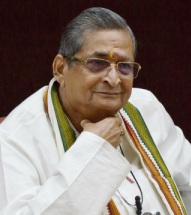
The current year 2022 is a monumental milestone for the amicable relation between India and Japan. Positive diplomatic relations between the two nations were established in 1950. Apart from the teachings of Lord Buddha, the messages of peace, non-violence, and brotherhood unite the spirits of both countries.
Apart from the religion of Buddhism, Gurudev Rabindranath Tagore is also held in high regard and respect in Japan. Along with this, Tokyo University was the first foreign institute to incorporate the study of Hindi in its academic curriculum in the year 1908. Even during India’s freedom struggle, the Imperial Army of Japan assisted the legendary freedom fighter, Subhash Chandra Bose’s, Azad Hind Fauj which proved to be a pivotal moment in India’s freedom struggle. In this manner, several instances bring India and Japan closer.
Japan is not one of those countries that conspire of exploiting others while building trade relations with them. Japan has openly assisted India in funding various projects during the last 70 years. The upcoming bullet train project in India has been made a reality solely due to the aid of Japan. Japan is providing the necessary funding to India for the Mumbai-Ahmedabad bullet train project at a comparatively lower interest rate than the rate at which they loan to other countries. In addition, the repayment period of the loan has been extended to 50 years instead of the usual 25 years. The Japanese company Japan International Cooperation Agency has extended a helping hand to accelerate the construction of the fourth phase of Delhi Metro Rail Corporation, which is facing severe financial trouble. It has agreed to provide financial assistance for the construction of the tracks and the necessary process has also started in this regard.
It is believed that as soon as the necessary financial help is received, the construction work of the fourth phase of Delhi Metro will accelerate. Delhi Metro, which was suddenly forced to halt its operations from 22nd March 2020 due to the outbreak of Coronavirus, commenced its functioning on 7th September 2020. However, in the meantime, it had already incurred a loss of about Rs. 1500 crores. There was an obvious financial problem with funding the new project.
Dozens of Japanese companies have invested billions of rupees in India, but none of them have been ever accused in a manner that questions their intentions. Thousands of Japanese citizens are contributing towards the development of India by working in Delhi, Mumbai, Gurugram, Noida, etc. Japanese citizens living in India are very optimistic about India’s bright and prosperous future. These Japanese work in the offices and factories of about two dozen Japanese companies located in different parts of India, including Honda CL Car, Honda Motorcycle, Maruti, Fuji Photo Films, Denso Sales Limited, and Daikin Air Conditioning to name a few.
They are partisans of Lord Buddha, and they revere India because it is the land of Gautam Buddha. It is of belief, that the life of Lord Buddha was dedicated to eliminating injustice from society. His compassionate spirit has brought him to the hearts of crores of people around the world. These Japanese also embrace the ways of Indian culture, they are economical and like Indians, they value the institution of joint family. If some Japanese live close to each other, then they prefer to travel to the office together by carpool. So it can be said that generally, the morals of both the countries are similar.
It is plain as day that Japan elevates India to the status of a special friend. There are also the blessings of Lord Gautam Buddha in strengthening this connection. That is why Japan is closer to India on an emotional and spiritual level. Every year thousands of Buddhist pilgrims come to India from Japan. They usually visit Bodhgaya, Rajgir, Sarnath, and Varanasi. Japanese tourists visiting Bodh Gaya also visit Sarnath. Gautam Buddha delivered his first sermon after attaining enlightenment at Sarnath. The attraction of Buddhist followers towards India, the birthplace of Gautam Buddha, is natural and understandable. The Bodh Gaya, Rajgir, and Nalanda Circuit are considered some of the most important tourist destinations in the country.
Katsu San Ji arranges the proceedings of Vishwa Shanti Stupa located in the capital’s Indraprastha Park. Katsu San Ji is predominantly a Japanese resident. She first came to India in 1956, intending to understand India and Buddhism closely. After arriving, she decided to settle here. She considers India to be the spiritual guru of the world.
Katsu San Ji can speak fluent Hindi. She learned Hindi from the famous litterateur Kakasaheb Kalekar. She has been a permanent part of the audience of the all-religion prayer meetings organized by the government in the capital. She will also participate in the prayer meeting to be held at Rajghat on Martyr’s Day to commemorate Gandhi’s supreme sacrifice day on 30th January. She says that the Indo-Japan friendship is unbreakable because the link that ties them is Lord Buddha.
While talking about Indo-Japanese relations, the Chinese point of view cannot be ignored. Taro Aso visited India in 2006 as the Deputy Prime Minister of Japan. At that time, he had stated that for over 1500 years in the past, there is no proof in history that signifies that their relationship with China has been stable or cordial. Meanwhile, the relations between India and China also cannot be ignored. China has forcibly occupied thousands of acres of land in India. The border dispute between India and China doesn’t appear to be resolved anytime soon as China’s policy has neither been fair nor transparent. China has also maintained friendly relations with India’s biggest enemy, Pakistan. Therefore, India’s and Japan’s stances regarding China are almost identical.
The writer is a senior editor, columnist, and former MP.
 The Business Bytes
The Business Bytes